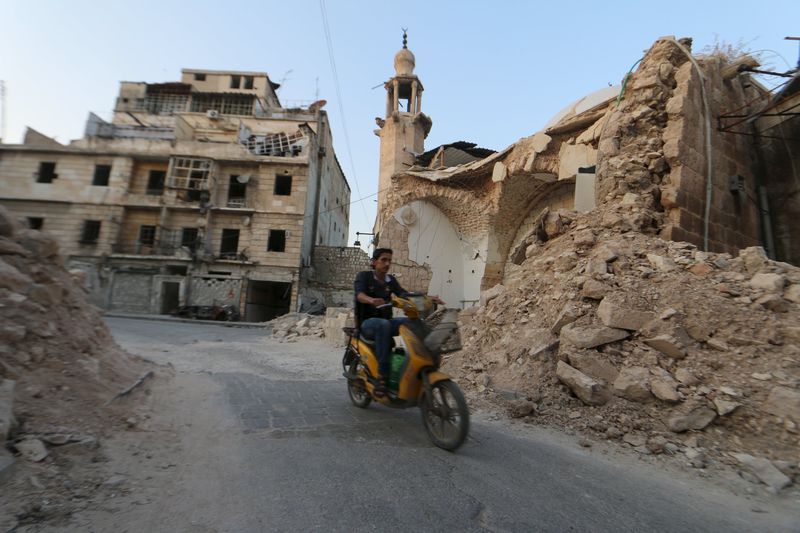BEIRUT (Reuters) - Mains water and electricity have returned to large parts of the Syrian city of Aleppo following a three-week cut after al Qaeda's local wing stopped water supplies to pressure the government, a group monitoring the war said on Saturday.
Al Qaeda's Nusra Front stopped supplies to government and insurgent-held areas of Aleppo by closing the city's main water station, forcing residents to drink untreated water from wells or resort to other emergency supplies, the Syrian Observatory for Human Rights monitoring group said.
The station's manager, who belongs to the Nusra Front insurgent group, had told the government in a letter to restore electricity supplies to parts of the city in return for reactivating the pump, the Observatory said.
Parties involved in the four-year Syrian conflict have frequently used access to water and electricity as bargaining chips. In some areas enemy sides have struck deals to ensure essential supplies.
The water station manager also called on the Syrian Arab Red Crescent (SARC) aid group to provide diesel for the water pump, the Observatory said. International aid groups in Syria usually partner with SARC at the government's request.
A spokesman for the International Committee of the Red Cross, which works with SARC, said the main water plant in Aleppo had been functioning since Friday evening in emergency mode, providing limited water supplies to both sides of the city.
Some neighbourhoods had only been getting mains water every five days, spokesman Pawel Krzysiek said.
"The ICRC and SARC are completing the water supply chain by water trucking in the areas not covered in a given day in addition to making sure all water points in the city are operational," he said in an email. He was not able to provide details on why the water station had restarted.
Only one of the three main electricity sources for Aleppo is operational, Krzysiek said, meaning that in most cases residents get only one hour of electricity per day.
A Twitter (NYSE:TWTR) feed for SARC in Aleppo posted pictures on Friday showing its emergency water deliveries in the city. SARC officials were not immediately available for comment.
Aleppo was Syria's most populated city and commercial hub before the conflict erupted in 2011. Reduced to rubble in many areas, it has been carved up between government forces and various insurgent groups.
The Britain-based Observatory, which tracks the conflict using sources on the ground, also reported that Syrian authorities released more than 350 prisoners on Thursday and Friday in Damascus to mark the end of the Muslim holy month of Ramadan.

Those released were mainly activists involved in protest movements at the beginning of the uprising, the Observatory's founder Rami Abdulrahman said. It is traditional for governments in the Middle East to release prisoners or pardon people at the end of Ramadan.